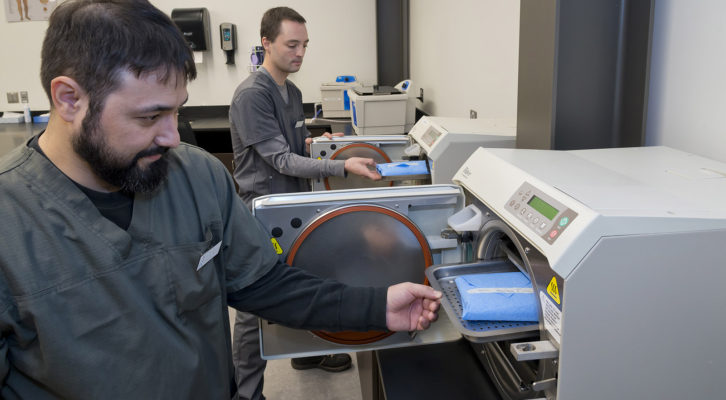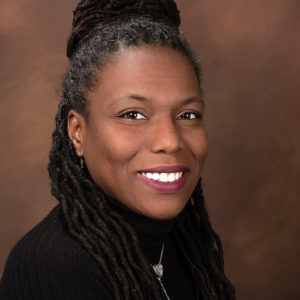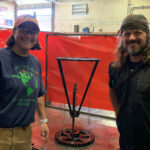PC Alum Shares Passion for Field, and What Students Can Expect in Our Medical Assisting Program
In this month’s blog Medical Assisting Instructor and Program Coordinator, Rachel Pairsh discusses her experience as both and student and faculty member in PC’s Medical Assisting Program, as well as some of the duties of this in-demand career.
My favorite part of the MA program is being able to share my love of the profession and passion for providing high quality patient care with students.
I graduated from this program, and worked as a classroom instructional tech for the former program director, before going out into industry. I was working on the prerequisites for the nursing program, actually, when Jen decided to retire and she and the college recruited me and asked me to come apply and interview. The rest, as they say, is history. I have loved every minute of my seven years running this program, and would not trade it or my students for the world, they are awesome!
My personal teaching style is a mixture that can best be described as a friendly authoritarian. I establish early on what the standards and expectations are for students, how they can meet or exceed those thresholds, then hold them accountable, while also asking them to hold me accountable. We are training allied health professionals, so we establish and maintain very high standards of professionalism for our students, staff, and faculty. My father had a saying: If the learners are not learning, then the teachers are not teaching. This means I am not successful if my students are not successful – I have not done my job to the best of my ability if they are not ready to do their jobs to the best of their ability by graduation. I believe in, endorse, and encourage students to adhere to Dr. Robins’ Not So Secret Secrets to Success: 1) show up; 2) do the work; 3) ask smart questions; 4) use the resources around you.
Our program stands out due to the quality of the graduates, the time they have built into their courses for hands-on learning and skills training, and the number of prospects our local employers and we offer students concerning service learning and networking opportunities.
To help with student success, we provide numerous resources, both digital and physical, offer mock interviews with a panel composed of local employers, have access to state of the art manikins and equipment and technology, and employ faculty and staff with extensive experience and knowledge of the field from their own successful careers as medical assistants before joining the team at PC.
Medical assistants are highly skilled health workers that are trained in both clinical and administrative skills and procedures. This means they are prepared to work in the exam rooms or offices of outpatient clinics. They can also work in ambulatory care facilities where they take vitals, transcribe medical histories, and assist physicians with procedures. In Washington, medical assistants-certified have a broad scope of practice: they perform EKGs, give injections, apply casts, draw blood, remove sutures, and perform wound care, among many other skills and abilities.
Some people like to work as medical assistants to gain experience before pursuing other healthcare occupations. For example, you can work as a medical assistant while you complete prerequisite classes for programs in nursing or physical therapy assisting. Medical assistants can also move into clinic management. Some medical assistants work with their employer to train as surgery technicians or laboratory technicians. Medical assistants who are certified can also seek additional credentials from Washington State in order to perform expanded duties. Additional credentials enable them to perform hemodialysis, phlebotomy, or forensic blood draws.
To learn more about our program, visit https://pencol.edu/proftech/medical-assisting.





